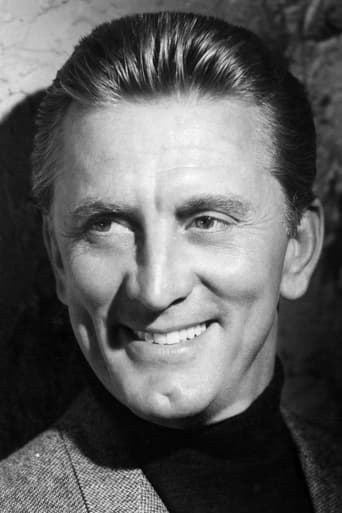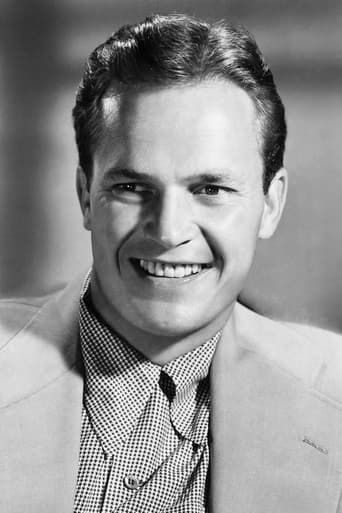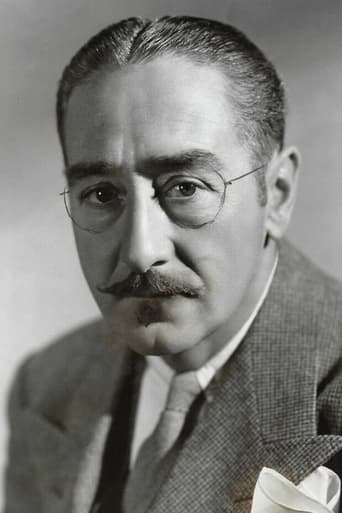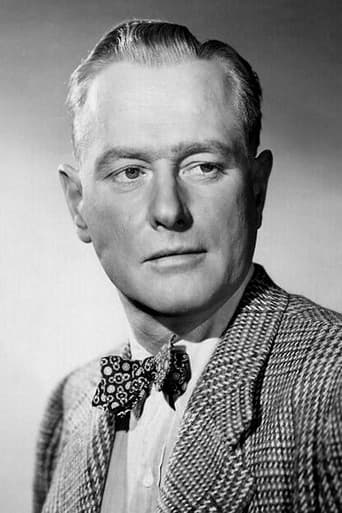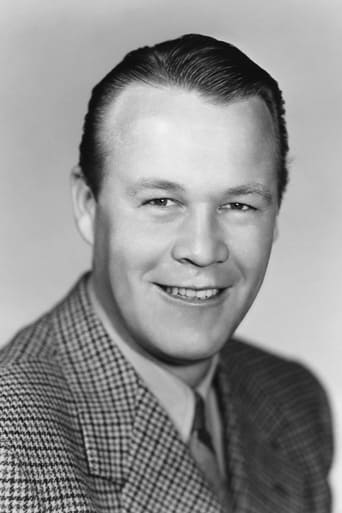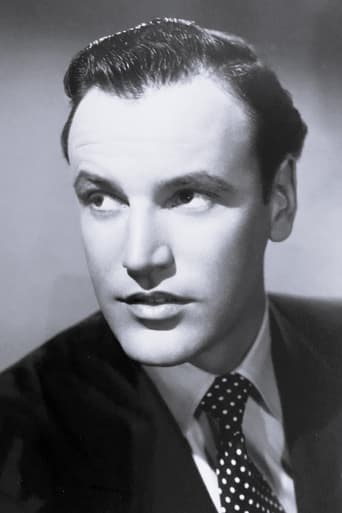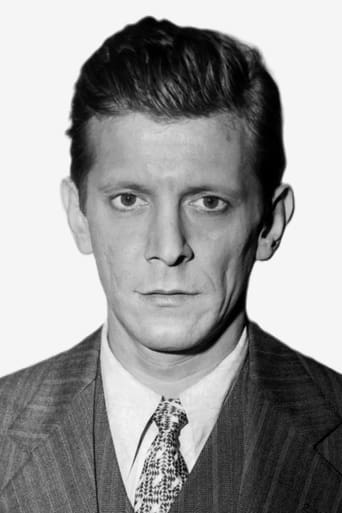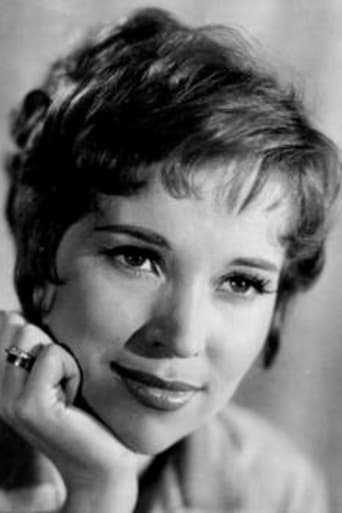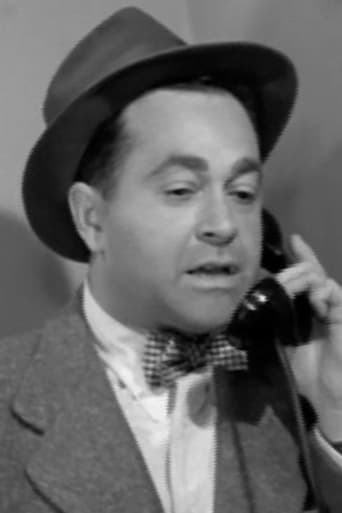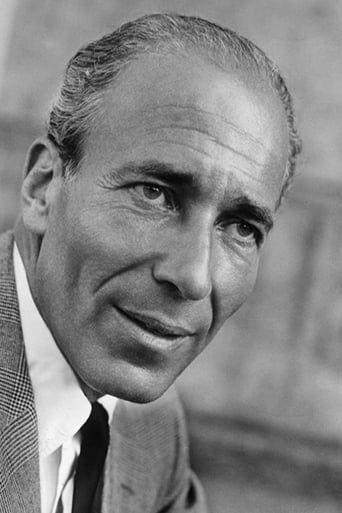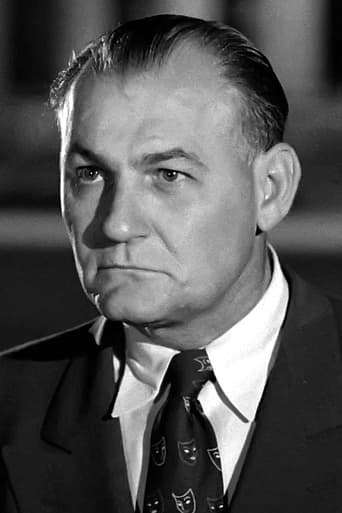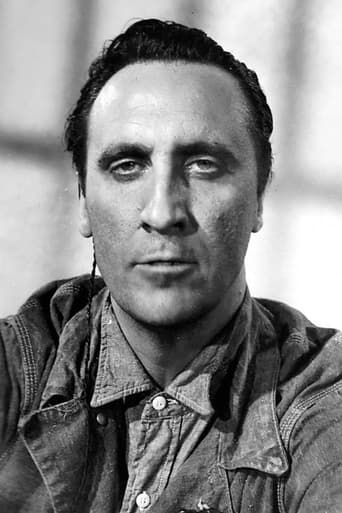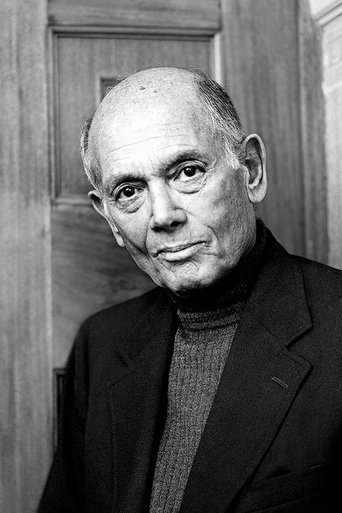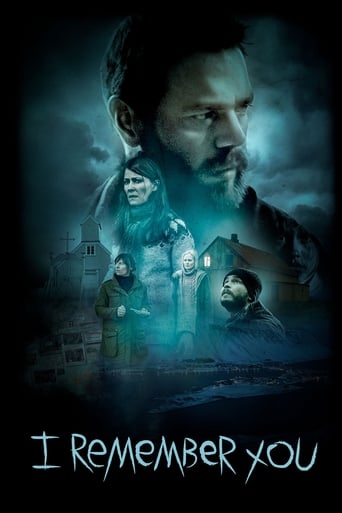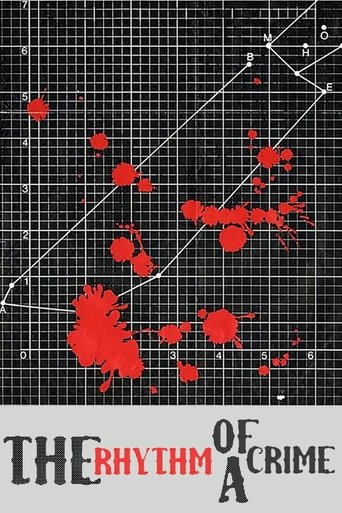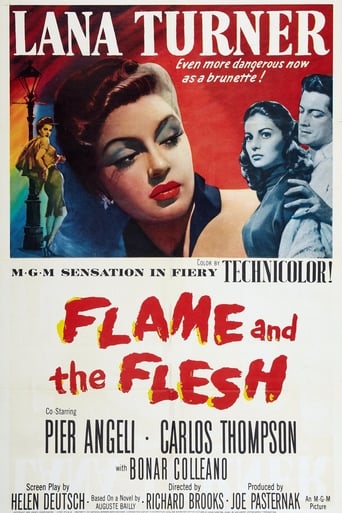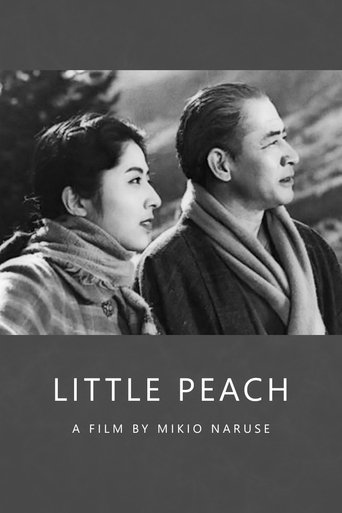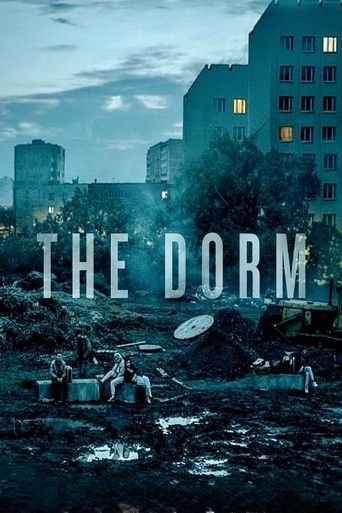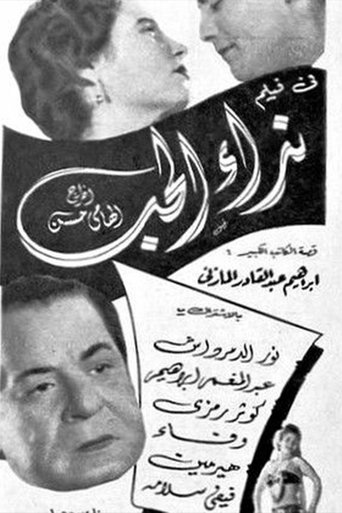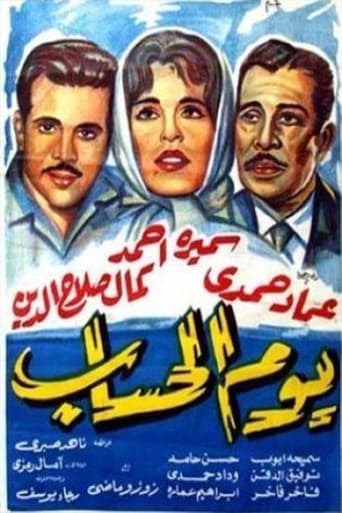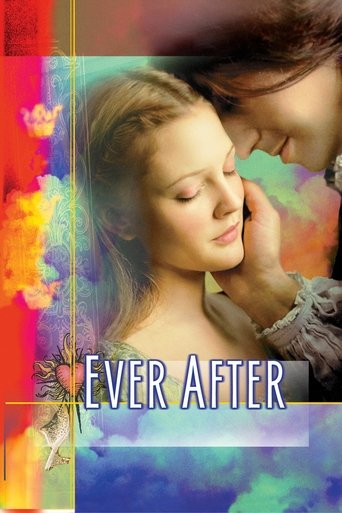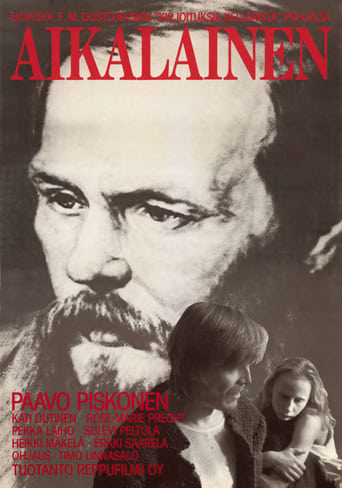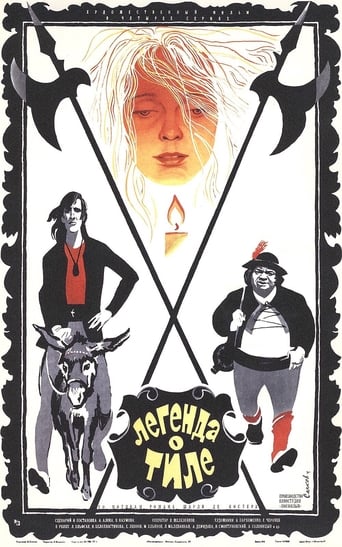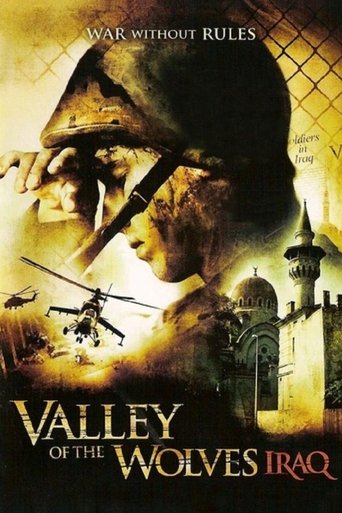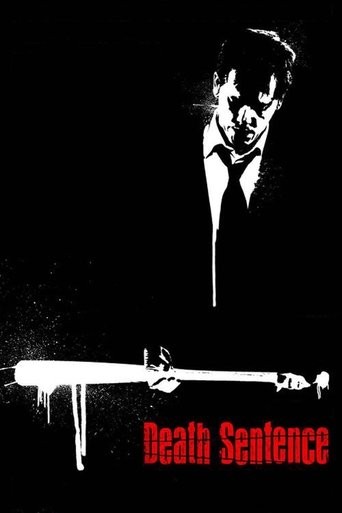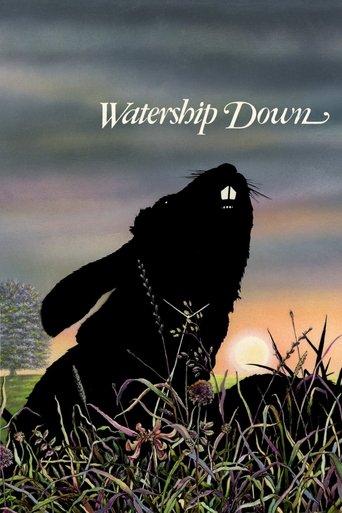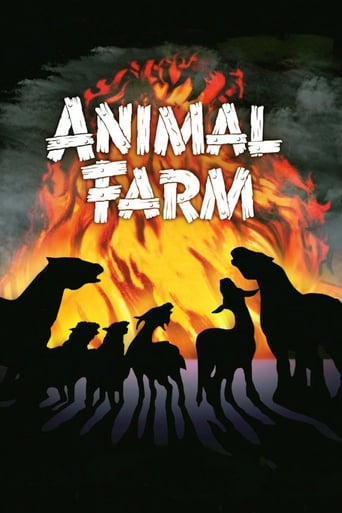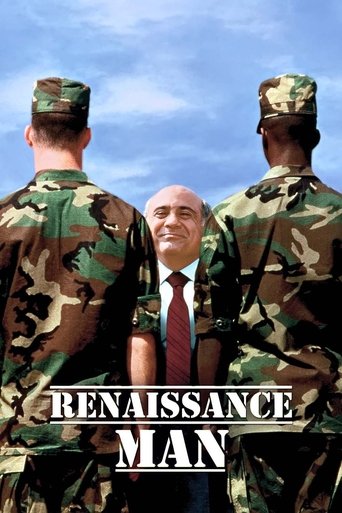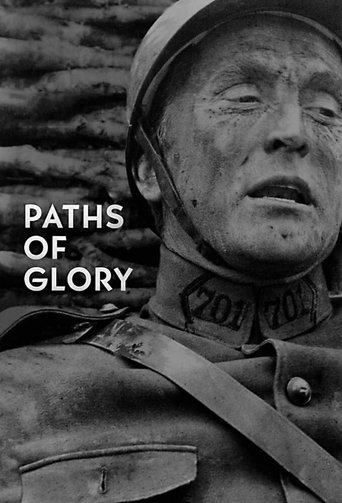










Paths of Glory (1957)
A commanding officer defends three scapegoats on trial for a failed offensive that occurred within the French Army in 1916.
- Stanley Kubrick
- Hans Stumpf
- Franz-Josef Spieker
- Dixie Sensburg
- Trudy von Trotha
- Stanley Kubrick
- Jim Thompson
- Humphrey Cobb
- Calder Willingham
Rating: 8.259/10 by 2979 users
Alternative Title:
Tropy slavy - RU
Op de paden van de roem - BE
Glória Feita de Sangue - BR
영광의 길 - KR
Ścieżki chwały - PL
Senderos de gloria - ES
Փառքի արահետներ - AM
Country:
United States of America
Language:
English
Deutsch
Latin
Runtime: 01 hour 28 minutes
Budget: $935,000
Revenue: $1,200,000
Plot Keyword: army, france, based on novel or book, general, germany, world war i, patriotism, cowardice, idealism, idealist, black and white, soldier, anti war, 1910s, war, fighting the system
Madness and Patsies Crash Together In Kubrick's Explosive Thunderbolt. Stanley Kubrick's Paths of Glory is holding up rather well these days, in fact it's as pertinent and relevant as ever. It's 1916 and the French and German armies are in opposing mud trenches, when the French are ordered to undertake a suicidal assault on a German held hill, many of the soldiers are quick to realise it's an impossible order to see through to its conclusion and retreat, something which brings charges of cowardice from the military hierarchy. Someone must take the fall... Withdrawn from circulation in France at one time, unreleased in Spain as well, Paths of Glory is a shattering indictment on military hierarchy. On those General types who watch from afar through telescopic sights as men and boys are led like lambs to the slaughter, then off they go to their dinning rooms to gorge on wine and wholesome meat, the stench of rotting flesh as bad on their breaths as it is out there in no man's land. But it's OK for the war effort, while there might even be a promotion for some lucky soul in nice trousers... A two-parter, the film was adapted from the novel written by Humphrey Cobb. The first half follows the craziness of the attack, the horrors of war brutally realised as Kubrick and cinematographer Georg Krause bring out the worry and simmering anger that jostle for the soldier's souls. The camera is cold and calculating, thus perfect for the material to hand, it leads the viewers - with skillful fluidity - through the bleakness of the trenches and the desolation of no man's land, the former a foreboding place, the latter an atrocity exhibition as bodies get flayed and shattered, while others retreat with limbs or sanity barely intact. Second part shifts to a legally based procedural as the Generals conspire to make an example of those who retreated. Cowardice and a dereliction of duty apparently means the firing squad must save the integrity of the army. Patsies are lined up, but their Colonel (a superb Kirk Douglas) wants to defend them, there's much sweat, tears and anger, accusations hurled, and mistakes once again proving insurmountable. Which leads to the astonishing finale, heartbreaking whilst inducing fury, and crowned by an elegiac song that brings tears for characters and viewers alike. A monochrome masterpiece full of technical skills, towering performances and writing to die for, Paths of Glory, candidate for one of the greatest anti-military films ever crafted. 10/10
"Col. Dax" (Kirk Dougas) is cajoled by "Gen. Broulard" (Adolphe Menjou) into taking his Great War weary regiment on one last mission in occupied France. Frankly, it's little better than a suicide one, but his operational commander "Gen. Mireau" (George Macready) is determined at all costs that they succeed. Let battle commence! Only the French soldiers quickly realise that they are facing a well armed, immovable, German opponent and are either killed or driven back. Desperate to motivate his men, "Mireau" gives an order that is luckily not acted upon and with the mission deemed a failure and many of the men now in the relative safety of their trenches, the general orders a court martial for cowardice of three of the survivors. "Dax" is appalled but a trial there must be... Are the right people being tried and is the outcome a mere formality? I saw a 16mm print of this rather gripping and depressing wartime drama and it augmented the genuine sense of peril faced by these men as incoming artillery, the claustrophobic trench existences and - make no mistake - the competencies of their officers are put on display for us. It's dark, wet, gritty and as we reach the denouement clearly illustrative of the futility of much of this stage of this war. Kirk Douglas takes top billing and is adequate, it's Macready who actually steals this for me and the director's wife does the briefest of scenes as a German cabaret singer, too. Again, I think cinema will focus this better than television, but either way it's a thought-provoking exposé of war that holds up well 60-odd years later.
**A short and objective film, with a clear and still relevant message, as well as a huge performance by Kirk Douglas.** There are several films about World War I, but it is far from being seen by the public as one of the best. In fact, it seems to me a little forgotten today. It is, however, timely and current in its pacifist message in which the greatest absurdity of war is emphasized in a partially true story, in which a group of three French soldiers is shot by cowardice after joining an inglorious attack to a much stronger and prepared German position. Stanley Kubrick is a director to which no one gets indifferent: either if he loves or hates. He seems to have enjoyed fostering this by choosing hard themes, uncomfortable and debatable movies. This is just one more, and I, who loved some of his movies just as I hated others, decided to put this movie in the middle of the table. It is much more direct and easy to understand than most of his later work, but is nonetheless uncomfortable for the questions raised. For example, the contrasts between the ordinary soldier, mud in a trench and subject to die like an animal, and the generals, kilometers in the rear, in beautiful palaces where there is not a single shot. Intelligently, Kubrick focuses on the obvious injustice of punishment as proof of the inhuman absurdity of war and military leaders. Thus, the movie is simple, direct, short (not even one and a half hours) and abrasive. Black-and-white cinematography is very clear, luminous and works a lot of light and shadow. The edition is effective and the soundtrack almost imperceptible for discretion. The sets and costumes are worthy of a large production. However, there are no action and combat scenes do not focus on the intensity of the fight, but its most human side. It is another perspective of war: those looking for action will not have what they want, but who wants a deeper movie has a full plate here. Kirk Douglas is the protagonist, embodying a colonel who is responsible for carrying out the defense of the military under trial. The efforts he desperately leads to the last instances are notable, but as the sentence was predetermined, the court is a sordid masquerade. Douglas begins to be cordial and contained, an officer at the orders, part of the gear, but gradually changes as his character is confronted with all that brutality, and this is really a meritorious effort for any actor. I don't know his work well yet, but I wouldn't surprise me if this was one of Douglas's best movies. Unfortunately, and without disregard for Adolphe Menjou and Joe Turkel's efforts, the rest of the cast does not accompany him at all.

